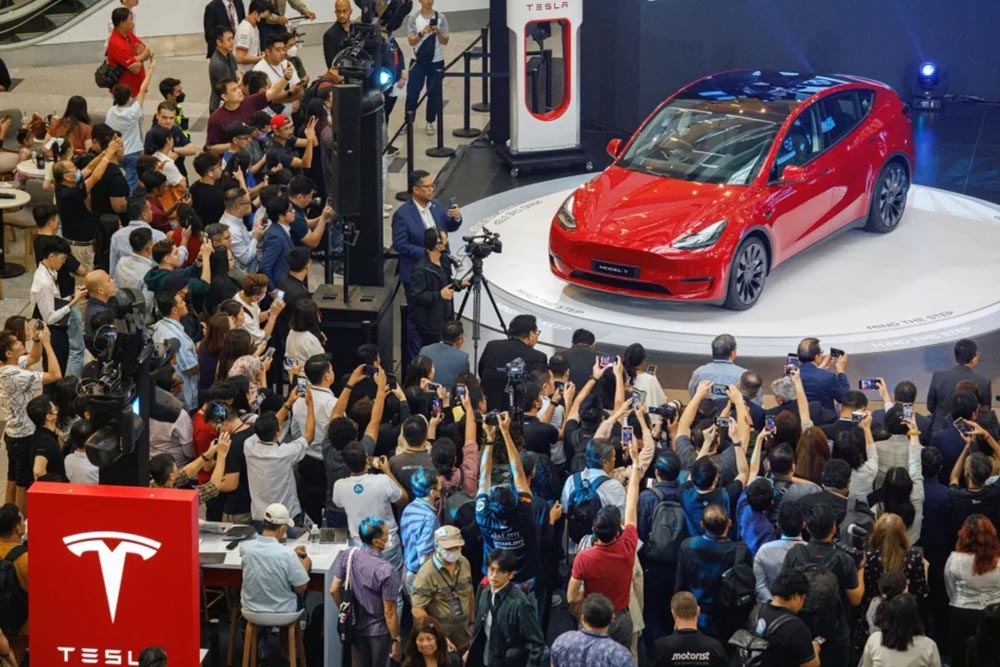Tesla and BYD, propelled by China’s robust EV market, have reached significant heights but are now seeking growth beyond China due to its slowing pace. Tesla, after instigating a price war in China last year, eyes Southeast Asia as its next frontier for expansion.
Southeast Asia is anticipated to witness substantial growth in battery storage and electric vehicle adoption in the forthcoming years, according to Rohan Patel, a senior executive in public policy and business development at Tesla.
In response to a user’s post celebrating the initial deliveries of Tesla’s Model Y in Malaysia, Patel highlighted the region’s potential for growth. Last year, Malaysia granted Tesla a license to sell its vehicles, prompting the establishment of a head office, service hub, and experience center in Selangor. Additionally, Tesla pledged investments in a network of fast-charging stations across the country.
Tesla is also in discussions with Thailand, Southeast Asia’s largest car producer and exporter, to establish a production facility in the country. Moreover, Indonesia, with its abundant nickel reserves crucial for EV batteries, is actively wooing Tesla, with President Joko Widodo personally meeting Elon Musk in 2022.
However, Tesla faces competition from BYD, another Chinese EV giant, which surpassed Tesla in battery EV sales at the end of the previous year. BYD accounted for 26% of all EV sales in Southeast Asia compared to Tesla’s 8% in the second quarter of last year. The Chinese company emerged as the top-selling EV brand in Thailand, Malaysia, and Singapore in 2023.
BYD is also expanding its production footprint in Southeast Asia. The company commenced construction of its first auto plant in Thailand last March, with an expected annual capacity of 150,000 vehicles. Additionally, it is investing $1.3 billion to establish a factory in Indonesia, aiming to capitalize on the region’s growing EV market.



